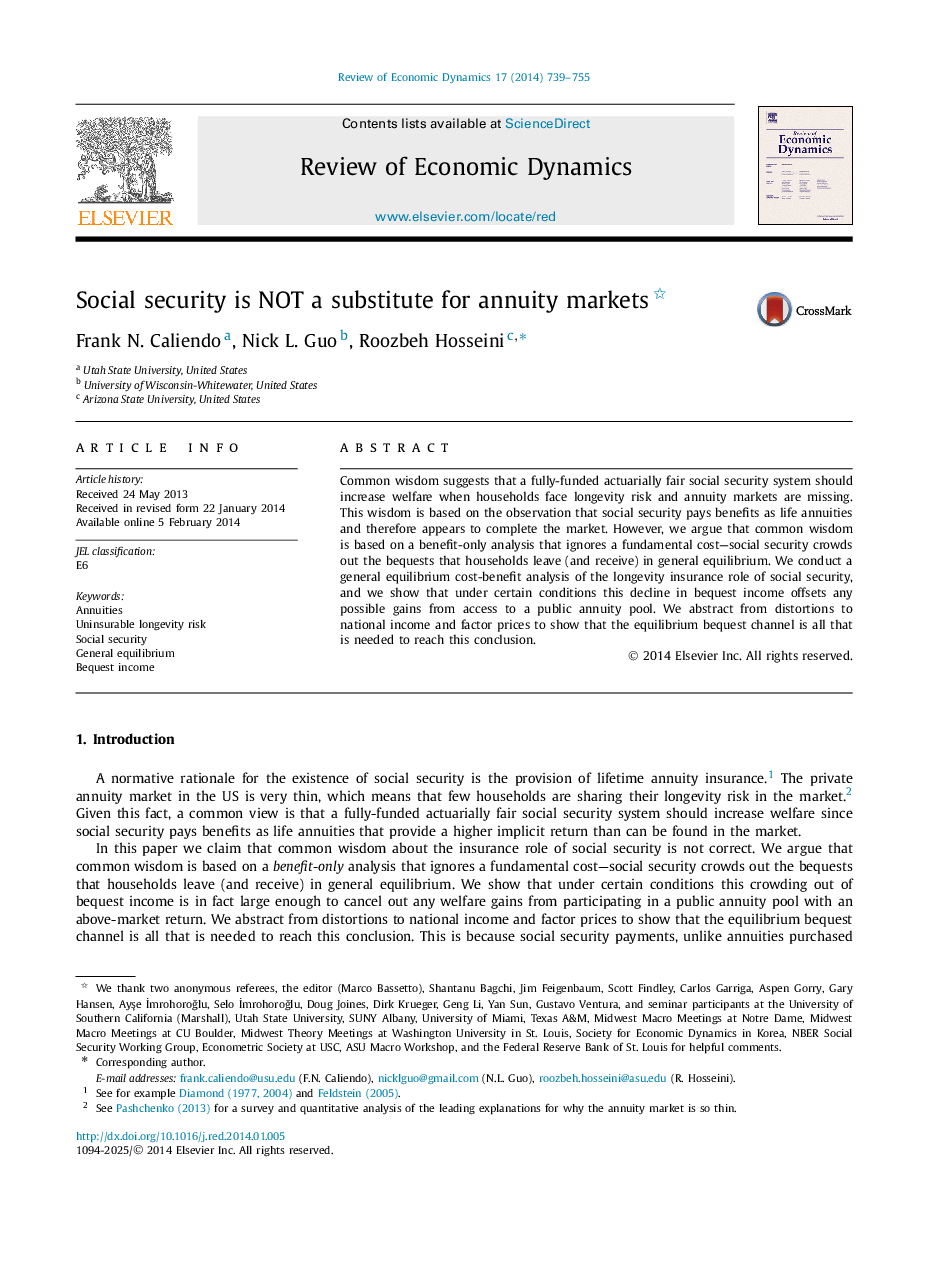| Article ID | Journal | Published Year | Pages | File Type |
|---|---|---|---|---|
| 986669 | Review of Economic Dynamics | 2014 | 17 Pages |
•We ask whether social security can improve welfare when annuity markets are absent.•We show that social security does not improve consumption smoothing.•It can only be a positive income transfer. At the same time it crowds out bequests.•We show that under certain conditions, these two effects offset each other.•We demonstrate numerically that our findings extend to more general settings.
Common wisdom suggests that a fully-funded actuarially fair social security system should increase welfare when households face longevity risk and annuity markets are missing. This wisdom is based on the observation that social security pays benefits as life annuities and therefore appears to complete the market. However, we argue that common wisdom is based on a benefit-only analysis that ignores a fundamental cost—social security crowds out the bequests that households leave (and receive) in general equilibrium. We conduct a general equilibrium cost-benefit analysis of the longevity insurance role of social security, and we show that under certain conditions this decline in bequest income offsets any possible gains from access to a public annuity pool. We abstract from distortions to national income and factor prices to show that the equilibrium bequest channel is all that is needed to reach this conclusion.
